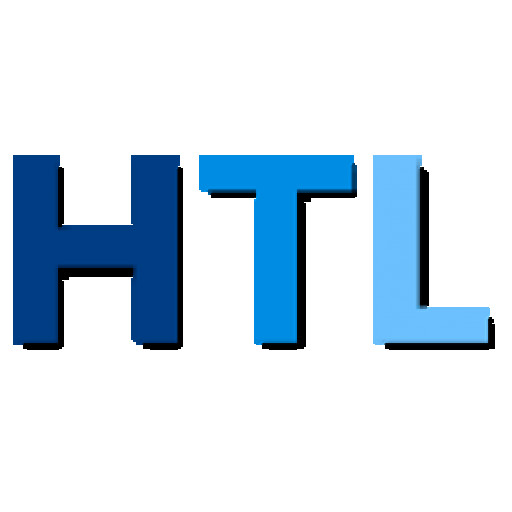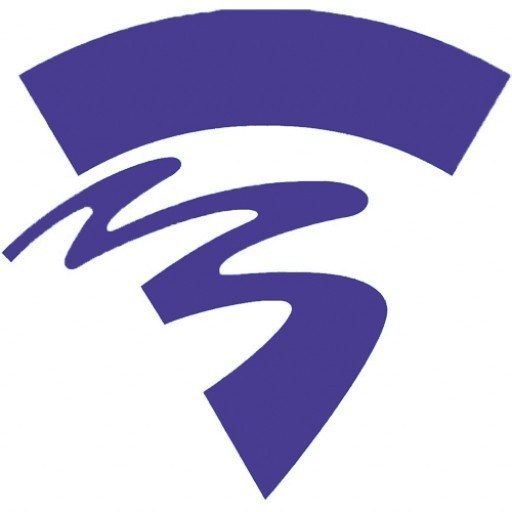Photos of university / #dartmouthcollege
The Classic Languages and Literatures program at Dartmouth College offers students an in-depth exploration of the ancient Greek and Latin languages, as well as the rich literary, historical, and cultural traditions of the Greco-Roman world. Through comprehensive coursework and rigorous linguistic training, students develop proficiency in reading, translating, and analyzing classical texts, gaining a deeper understanding of the foundational texts of Western civilization. The program emphasizes the development of critical thinking skills, close textual analysis, and an appreciation for the historical contexts that shape classical literature, philosophy, rhetoric, and history.
Students in this program have the opportunity to study a wide range of primary sources, from epic poetry and tragedy to philosophical treatises, political speeches, and scientific writings. The curriculum is designed to balance language acquisition with studies of classical culture, allowing students to engage with the ancient world both linguistically and culturally. Advanced courses introduce students to specialized topics such as Greek drama, Latin epic poetry, classical mythology, and antiquarian studies. The program encourages interdisciplinary approaches, integrating insights from archaeology, history, and literary theory to foster a holistic understanding of classical civilizations.
Dartmouth’s classical language program provides a supportive learning environment with dedicated faculty experts who mentor students through individual research projects, thesis work, and participation in classical studies conferences. The program prepares students for various future careers, including academia, law, government, publishing, and education. Additionally, students are encouraged to participate in study-abroad programs in Greece and Italy, further immersing themselves in the classical world and enhancing their linguistic and cultural fluency. Overall, the Classical Languages and Literatures program at Dartmouth College aims to cultivate a profound appreciation for classical civilizations and equips students with the necessary skills to analyze, interpret, and contribute to ongoing scholarship in the field.
REQUIREMENTS FOR THE MAJOR IN CLASSICAL LANGUAGES AND LITERATURES
- Any six language courses in Greek and/or Latin numbered 10 or higher (GRK 10 Readings in Greek Prose and Poetry, GRK 20 Homer, GRK 22 The Lyric Age of Greece, GRK 24 Theatre, GRK 26 Intellectual Enquiry in Classical Athens, GRK 28 Philosophy, GRK 29 New Testament, GRK 30.03 Studies in Greek and Latin Literature, GRK 85 Independent Reading and Research, GRK 87 Thesis. LAT 10 Readings in Latin Prose and Poetry, LAT 20 Vergil, LAT 22 Literature of the Republic, LAT 24 The Augustan Age, LAT 26 Literature of the Early Empire, LAT 28 Literature of the Later Empire and the Middle Ages, LAT 30.02 Studies in Greek and Latin Literature, LAT 85 Independent Reading and Research, LAT 87 Thesis).
- Two courses distributed as follows:
- One course selected from Classical Studies 2-5 (CLST 2 The Tragedy and Comedy of Greece and Rome, CLST 3 Reason and the Good Life: Socrates to Epictetus, CLST 4 Classical Mythology, CLST 5 The Heroic Vision: Epics of Greece and Rome).
- One course selected from Classical Studies 14-26 (CLST 14 Greek History: Archaic and Classical Greece, CLST 15 Alexander the Great and the Macedonean Kings, CLST 17 Roman History: The Republic, CLST 18 History of the Roman Empire: Roman Principate to Christian Empire, CLST 19 Methods and Theory in Ancient History, CLST 20 Greek Prehistoric Archaeology: The Emergence of Civilization in the Aegean, CLST 21 From Disaster to Triumph: Greek Archaeology from the Destruction of Mycenae to the Persian Wars, CLST 22 Greek Classical Archaeology: City-States and Panhellenic Sanctuaries, CLST 24 Etruscan and Early Roman Archaeology: The Rise of Rome, CLST 25 Early Roman Imperial Archaeology: The First Emperors, CLST 26 Later Roman Imperial Archaeology: The Golden Age and Beyond).
- Two additional courses selected from:
- Any Classical Studies course numbered 2 or higher.
- Any course in Greek or Latin numbered 10 or higher (excluding Greek 11).
- Art History 21 (Art in Ancient Greece: Temples, Gods, Heroes), 22 (Art in the Hellenistic era: from Alexander to Cleopatra), 25 (Roman Art), Comparative Literature 10 (COLT 10.11 Male Friendship from Aristotle to Almodovar, COLT 10.12 Race in the Middle Ages, COLT 10.13 Debate and Dialog in Emerging Europe, COLT 10.14 The Literary Fairy Tale, COLT 10.02 Robbers, Pirates, Terrorists: Forms of Individual Resistance in Literature and Film), Philosophy 11 (Ancient Greek and Roman Philosophy).
- Completion of Culminating Experience Requirement.
REQUIREMENTS FOR THE MODIFIED MAJOR IN CLASSICAL LANGUAGES AND LITERATURES
- Any five courses in Greek and/or Latin numbered 10 or higher (excluding Greek 11).
- Completion of Culminating Experience Requirement.
REQUIREMENTS FOR THE MINOR IN CLASSICAL LANGUAGES AND LITERATURES
- Any four courses in Greek and/or Latin numbered 10 or higher (excluding Greek 11).
- One course selected from:
- Classical Studies 2-5, 29-31.
- Any course in Greek or Latin numbered 10 or higher (excluding Greek 11)
- Comparative Literature 10 (only if on a Classics topic), Philosophy 11.
- One course in ancient history or archaeology selected from Classical Studies 14-26.
1. SAT Reasoning or ACT (with Writing);
2. 2 SAT Subject Test Scores;
3. The common application essay;
4. Within the Common Application, Dartmouth’s writing supplement requires that applicants write a brief response to one of the following supplemental essay prompts. Candidates choose one topic and respond;
5. A counselor recommendation and two teacher recommendations. In addition, a peer recommendation is strongly encouraged;
6. Resume;
7. Brief abstract of an independent research project;
8. IELTS or TOEFL (no minimum scores).
Want to improve your English level for admission?
Prepare for the program requirements with English Online by the British Council.
- ✔️ Flexible study schedule
- ✔️ Experienced teachers
- ✔️ Certificate upon completion
📘 Recommended for students with an IELTS level of 6.0 or below.
Dartmouth Scholarships are need-based and are given without expectation of repayment. Amounts range from $1,000 to over $50,000, depending on our determination of your eligibility. Some Dartmouth students will be selected as recipients of one or more of our over 750 endowed scholarship funds. These awards are not additional money, but indicate that the aid already awarded will come from a specific endowed fund. No separate application is required. Students who receive scholarships from external sources can use these funds to reduce the loan and/or job portions of their financial aid packages. Veteran's benefits are included as a resource in the determination of eligibility for Dartmouth scholarship awards. Dartmouth College currently participates at 100% in the Yellow Ribbon Program which supplements GI Bill benefits. For U.S. citizens or permanent residents, the Free Application for Federal Student Aid (FAFSA) is the only form required to apply for Federal Financial Aid. The federal government provides Pell Grants to students who qualify on the basis of financial need as determined by their Free Application for Federal Student Aid (FAFSA). Federal Supplemental Educational Opportunity Grants (FSEOG) are awarded by the College to the most needy students. They vary in amount but do not exceed $4,000 a year. When you apply for financial aid, your parents' country of residence will determine which documents you need to submit. Parents living outside U.S. and Canada should provide income/benefits statement from employer.
The Dartmouth College program in Classical Languages and Literatures offers students an in-depth exploration of ancient Greek and Latin languages, literatures, and civilizations. The curriculum is designed to develop students' proficiency in reading and translating classical texts, while also providing a comprehensive understanding of the historical, cultural, philosophical, and literary contexts of antiquity. Students engage with original texts from a variety of genres, including epic poetry, drama, philosophy, history, and rhetoric, gaining insight into the intellectual foundations of Western civilization.
The program emphasizes language mastery through rigorous coursework in Greek and Latin, which typically includes courses in grammar, syntax, and prose and poetry translation. As students progress, they are encouraged to read original texts in the original languages, fostering deep linguistic and analytic skills. In addition to language study, students undertake courses in ancient history, archaeology, and classical civilization, broadening their understanding of the societal, political, and cultural structures of the Greek and Roman worlds.
Dartmouth's program often offers opportunities for advanced study, including seminars on specific authors or themes, independent research projects, and may incorporate experiential learning through archaeological fieldwork or participation in classical society activities. Students are encouraged to develop critical thinking, interpretative skills, and an appreciation for the literary and historical significance of classical texts.
Graduates of this program are well-prepared for careers in academia, education, museum work, publishing, and other fields requiring strong skills in critical analysis and understanding of ancient cultures. The program also supports students interested in interdisciplinary studies, linking classical studies with philosophy, history, art history, and religious studies.
Dartmouth’s commitment to the liberal arts ensures small class sizes, personalized mentorship from faculty experts, and ample extracurricular activities that enhance learning experiences. Overall, the program aims to cultivate a lifelong appreciation for the classical heritage and to develop skills applicable across various scholarly and professional disciplines.
(Length: approximately 2,200 characters)








